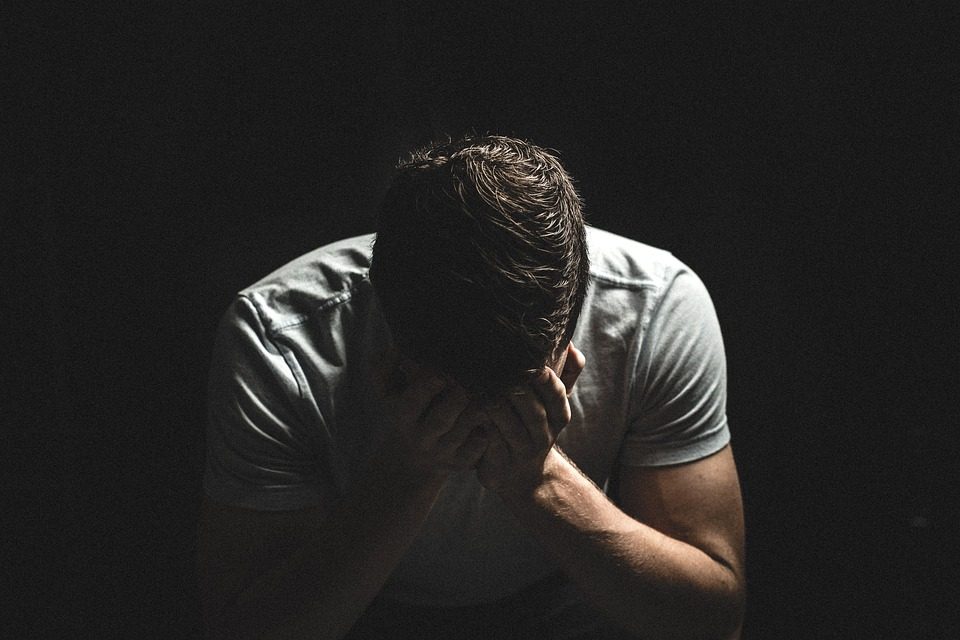Anxiety is a common mental health condition that affects millions of men worldwide. Fortunately, there are effective treatment options available to help men manage their anxiety and improve their overall quality of life. In this blog, we will explore various male anxiety treatment options, including therapy, medication, and self-recovery strategies. We will also discuss the benefits of seeking treatment and how it can lead to a healthier and more fulfilling life.
Contents
What Is Male Anxiety Disorder?

Male anxiety disorder is a mental health condition characterized by excessive worry, fear, and nervousness that interfere with a person’s daily activities. This condition can affect men of all ages and backgrounds and can be caused by various factors such as genetics, environment, and life experiences. Common symptoms of a male anxiety disorder include restlessness, irritability, difficulty concentrating, muscle tension, and sleep disturbances.
Is Male Anxiety Normal And Treatable?
Yes, male anxiety is a common experience and is considered a normal human emotion. However, when anxiety becomes excessive and interferes with daily activities, it may be a sign of a more serious condition that requires treatment. Male anxiety treatment is effective through various options, including therapy, medication, lifestyle changes, and self-help strategies. With proper treatment and support, many men can effectively manage their anxiety and lead fulfilling lives.
Therapy Treatment For Male Anxiety
Here are some points explaining therapy treatment options for male anxiety:
Cognitive Behavioral Therapy (CBT)
Cognitive Behavioral Therapy (CBT) is a type of therapy that can be effective for men with anxiety. It focuses on identifying and challenging negative thought patterns that contribute to anxiety and helps individuals develop coping strategies to manage their symptoms. CBT is a short-term therapy that typically involves 12-16 sessions.
ERP Therapy
Exposure and Response Prevention (ERP) therapy can be an effective treatment option for men with anxiety disorders such as obsessive-compulsive disorder (OCD). ERP involves gradually exposing individuals to anxiety-provoking situations and teaching them to resist engaging in compulsive behaviors. This therapy can help men develop coping strategies and reduce anxiety symptoms related to OCD.
Dialectical Behavior Therapy (DBT)
Dialectical Behavior Therapy (DBT) is a type of therapy that can be helpful for men with anxiety. DBT focuses on teaching skills to manage intense emotions, improve relationships with others, and increase mindfulness. This therapy is often used to treat anxiety disorders such as generalized anxiety disorder and social anxiety disorder.
Acceptance and Commitment Therapy (ACT)

Acceptance and Commitment Therapy (ACT) can be a useful therapeutic option for men with anxiety. ACT focuses on helping individuals identify their values and develop skills to accept and cope with difficult thoughts and emotions. This therapy aims to help men build psychological flexibility and resilience in the face of anxiety symptoms.
EMDR Treatment
Eye Movement Desensitization and Reprocessing (EMDR) can be an effective therapy option for men with anxiety who have experienced trauma. EMDR helps individuals process and overcome traumatic experiences by using bilateral stimulation, such as eye movements or tapping. This therapy can help reduce anxiety symptoms and improve overall well-being.
MBSR Treatment
Mindfulness-Based Stress Reduction (MBSR) can be an effective therapy option for men with anxiety. MBSR combines mindfulness meditation with cognitive behavioral techniques to help individuals manage anxiety symptoms. This therapy focuses on developing present-moment awareness and acceptance of difficult thoughts and emotions to reduce anxiety and improve overall well-being.
Group Therapy
Group therapy can be a helpful option for men with anxiety. In group therapy, men have the opportunity to share their experiences with others who have similar struggles. This therapy can help men feel less alone and provide a sense of community. Group therapy can also provide opportunities to learn from others and develop new coping skills.
Family Therapy
Family therapy can be an effective option for men with anxiety, especially if family dynamics are contributing to anxiety symptoms. It can help men and their families improve communication, resolve conflicts, and strengthen relationships. This therapy can also help families better understand and support their loved ones with anxiety.
Medication Treatment For Male Anxiety
Here are some points explaining medication treatment options for male anxiety:
- Antidepressants: These medications can be effective in treating anxiety, even if the person doesn’t have depression. Selective serotonin reuptake inhibitors (SSRIs) and serotonin-norepinephrine reuptake inhibitors (SNRIs) are the most commonly prescribed antidepressants for anxiety.
- Benzodiazepines: These medications can be effective in reducing anxiety symptoms quickly, but they are typically prescribed for short-term use due to the risk of dependence and withdrawal symptoms.
- Buspirone and Pregabalin: This medication is specifically approved for the treatment of generalized anxiety disorder and can be an effective option for some men.
- Beta-blockers: These medications can help reduce physical symptoms of anxiety, such as rapid heartbeat and trembling.
- Tricyclic antidepressants and MAOIs: These medications are an older class of antidepressants that can be effective in treating anxiety, but they are not commonly prescribed due to the risk of side effects.
Medications are usually not used as a first-line treatment. It’s important to note that medication should always be prescribed and monitored by a healthcare professional, and should be used in conjunction with therapy and lifestyle changes for the most effective treatment of anxiety.
Self-Recovery Strategies
 There are several self-recovery strategies that men can use to manage their anxiety:
There are several self-recovery strategies that men can use to manage their anxiety:
- Exercise regularly: Regular exercise can help reduce anxiety symptoms by releasing endorphins, which are natural mood-boosting chemicals.
- Practice relaxation techniques: Techniques such as deep breathing, meditation, and yoga can help reduce stress and anxiety.
- Get enough sleep: Getting enough sleep is crucial for mental health and can help reduce anxiety symptoms.
- Eat a healthy diet: Eating a balanced diet that includes plenty of fruits, vegetables, whole grains, and lean protein can help reduce anxiety symptoms.
- Avoid alcohol and drugs: Alcohol and drugs can make anxiety symptoms worse and should be avoided.
- Identify triggers: It’s important to identify what triggers your anxiety so that you can develop strategies to manage these triggers.
- Practice self-care: Self-care activities such as taking a warm bath, reading a book, or spending time in nature can help reduce stress and anxiety.
- Stay connected: Maintaining social connections with family and friends can help reduce feelings of isolation and anxiety.
Benefits Of Male Anxiety Treatment
Here are some benefits of seeking treatment for male anxiety:
- Improved quality of life: Anxiety can have a significant impact on daily life, making it difficult to carry out even simple tasks. Seeking treatment can help reduce anxiety symptoms and improve the overall quality of life.
- Improved relationships: Anxiety can often lead to conflict and strain in relationships. Treatment can help individuals develop better communication and coping skills, which can lead to stronger and healthier relationships.
- Increased self-awareness: Treatment can help men develop a better understanding of their anxiety and the factors that contribute to it. This can help individuals develop effective coping strategies and improve overall self-awareness.
- Reduced risk of other health problems: Anxiety can increase the risk of other health problems, such as depression and substance abuse. Seeking treatment for anxiety can reduce the risk of developing these conditions.
- Improved work performance: Anxiety can impact work performance and lead to missed days or decreased productivity. Treatment can help individuals develop coping strategies to manage anxiety in the workplace and improve overall work performance.
- Better overall health: Anxiety can take a toll on both mental and physical health. Seeking treatment can help individuals reduce anxiety symptoms and improve overall health and well-being.
Conclusion
In conclusion, male anxiety is a common condition that can have a significant impact on daily life. However, effective treatment options are available. Seeking treatment for anxiety is a sign of strength and can lead to improved relationships, increased self-awareness, better work performance, and better overall health. With the right treatment and support, men can successfully manage their anxiety and live fulfilling and healthy lives.
For more information, please contact MantraCare. Anxiety is a common mental health condition characterized by persistent feelings of worry, fear, and apprehension. If you have any queries regarding Online Anxiety Counseling experienced therapists at MantraCare can help: Book a trial Anxiety therapy session.


